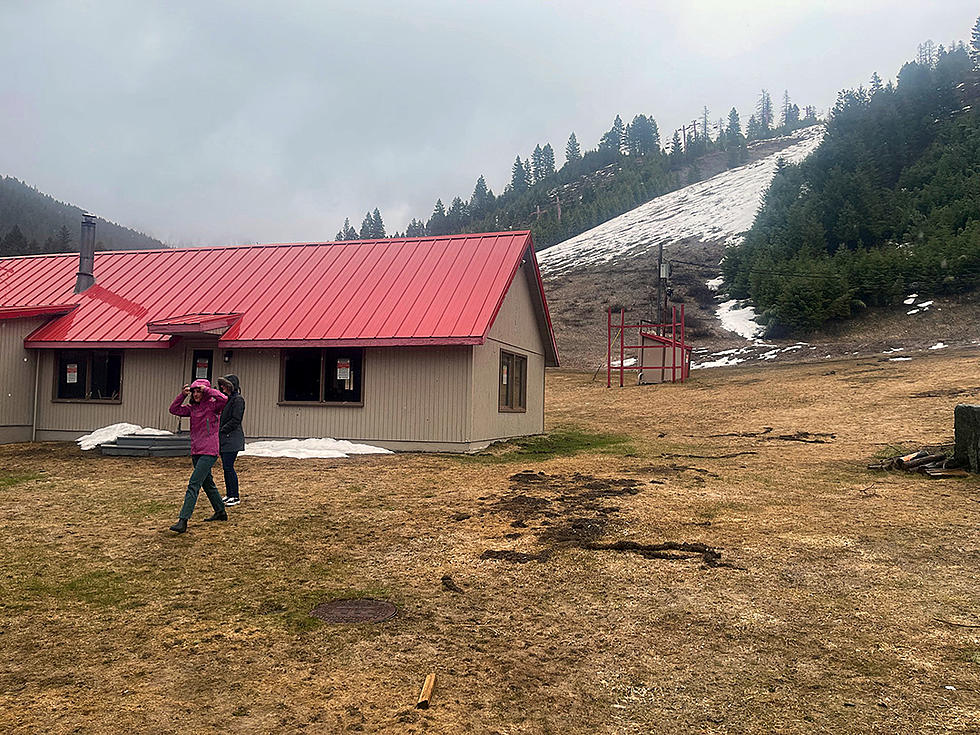
Some seek clarity on long-term Marshall costs as hearing date nears
Martin Kidston
(Missoula Current) Citing everything from economic opportunity to childhood education, a number of people spoke in favor Wednesday of the proposed public acquisition of Marshall Mountain – a move that will require around $2 million in funding from the open space bond and an estimated $400,000 in annual maintenance costs.
The county this week set a decision date for October on whether to allocate bond funding to the $3.8 million purchase. On Wednesday, the Missoula City Council opted to do the same. The joint hearing will take place on Oct. 4.
“The landscape has already been heavily impacted,” Nathan McLeod, the city's senior landscape architect, told council members. “Concentrating recreation at Marshall can help reduce the impacts to other natural landscapes. As this plan is built out, Marshall can provide additional recreational capacity as the population increases.”
While the City Council on Monday pulled a fire department levy from the November ballot citing taxes, those concerns were only voiced by a few on Wednesday when it came to buying the former ski hill and maintaining it in perpetuity.
The county this week estimated those annual maintenance costs at around $400,000, but said event programming could help reduce that expense. Any remaining costs would be equally split between the city and county.
According to the city, it currently costs around $217 a year to maintain 1 acre of the city's current conservation lands and around $3,140 a year to maintain 1 acre at Fort Missoula Regional Park. In comparison, McLeod said it will cost an estimated $883 a year to maintain 1 acre at Marshall Mountain.
“This is at full build out,” he added. “Initially, with what's on site now, those costs will be far less, but they will increase over time as development occurs.”
The total acquisition cost is estimated at $3.8 million, a price that includes land acquisition, appraisal fees and site improvements, among other things. The city and county each would contribute $1 million toward the purchase from their share of the Open Space Bond, and grants and other funding sources would also be applied.
Up front work would include trail-head improvements, removal of the old lodge, the chairlift tower, and the addition of various signage, according to McLeod.
“There's a lot of stuff on this site from a long history of it being a ski area that needs to be cleaned up,” said McLeod. “There's the old ski lift that's no longer functional. There's snow-making equipment that needs to be removed. There's lights for night skiing and wires. The cost to bring that (lodge) building up to code and make it safe far exceed the value of the building itself.”
Long Term Costs Still Fuzzy
Several members of City Council sought more clarity on the proposal's long-term costs, including Mirtha Becerra, who said she wanted assurance that it won't fall on taxpayers to maintain.
“I think this is a great opportunity, but I've been asking for numbers,” she said. “While it's a valuable piece of land for our community to purchase, we have financial constraints to our taxpayers.”
Becerra also asked why the city was using its share of the bond to purchase property in the county. Staff said any project bordering the city's planning area could qualify as a joint project and receive city funding. But when asked if the county has spent its bond funding to buy land in the city, city staff was uncertain.
Council member Mike Nugent also posed questions on funding.
“There's the conversation about using Open Space funding to preserve Marshall and make sure it doesn't fall into private development, and I think there's broad community support for that,” said Nugent. “But I do hear a lot of hesitation over management and the impact to the taxpayers.”
Despite unanswered questions over long-term costs, most expressed a strong sentiment for Marshall Mountain, which has served as a recreation site for area residents for generations. Native Americans also have place names for the site and are participating as partners with the city and county on future plans for the mountain.
Morgan Valliant, the city's conservation lands manager, cited a 2021 survey of households in the city and county, which found than 71% supported the purchase and 15% were opposed while 14% weren't sure.
The survey was conducted on the tail end of the pandemic and most city officials have recently noted that the economy has changed in recent years. Such phrasing was used to back the city's support for opening a second homeless shelter, now for a full year, though the city remains unsure how it will pay for it next year.
Also this week, the City Council cited taxes as its justification for pulling a levy from the November ballot that would have paid for a new fire station and fire company. But when asked by council member Daniel Carlino what would happen if Marshall Mountain fell into private ownership, city officials said it would be a deep loss.
“Losing Marshall would largely gut our outdoor recreation program within the city. We've become very reliant on it,” said Valliant. “We're just now realizing the potential at Marshall and how it connects to these larger landscapes. I think we'd also lose a huge potential for future acquisition and new connections.”
